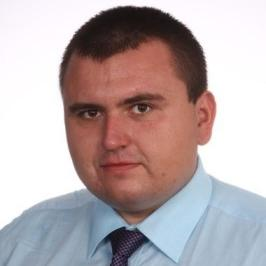Cogeneration Systems: Measurements, Data Analysis, Modelling and Control
A special issue of Applied Sciences (ISSN 2076-3417). This special issue belongs to the section "Energy Science and Technology".
Deadline for manuscript submissions: closed (10 May 2021) | Viewed by 8241
Special Issue Editors
Interests: alternative fuels infrastructure; energy storage; distributed generation; energy conversion from renewable energy sources; hydrogen conversion and storage; sustainable development
Special Issues, Collections and Topics in MDPI journals
Interests: fuel cells; molten carbonate fuel cells; solid oxide fuel cells; hydrogen production; conversion and storage; distributed generation; sector coupling; progress in hydrogen economy
Special Issues, Collections and Topics in MDPI journals
Interests: Modelling and simulation of power generation systems; Control of cogeneration systems; Hybrid systems: modelling simulation and control
Special Issues, Collections and Topics in MDPI journals
Special Issue Information
Dear Colleagues,
Cogeneration systems based on fuel cells, ORC systems, microturbines, gas turbines, combined cycles, steam cycles, gas engines, and Stirling engines powered by alternative fuels are currently one of the most promising technologies affecting the sustainable development of low-carbon economies.
This Special Issue will be devoted to experimental research, the application of new solutions, modeling, and calculation methods in the following areas:
- Predictive control, machine learning, neural network simulation, and optimization of cogeneration systems;
- Thermodynamic and exergetic analyses of cogeneration systems;
- Cooperation and integration of cogeneration systems with renewable energy sources;
- Cooperation and integration of cogeneration systems with operational infrastructure of hybrid and electric vehicles;
- Cooperation and integration of cogeneration systems with electrical energy storage systems, i.e., pumped hydroelectric storage, compressed air energy storage, liquid air energy storage, flywheel energy storage, electrochemical battery energy storage, superconducting magnetic energy storage, and ultracapacitors;
- Cooperation and integration of cogeneration systems with thermal energy storage systems, i.e., molten salts/phase change materials and heat storage;
- Measurement, data analysis of cogeneration systems powered by alternative fuels;
- Reliability analysis of cogeneration systems;
- Review of technical and economic aspects regarding cogeneration systems (i.e., fuel cells, ORC systems, microturbines, gas turbines, combined cycles, steam cycles, gas engines, Stirling engines, etc.);
- Diagnostics of cogeneration systems;
- Energy conversion and management of cogeneration systems;
- Applications of energy management systems, thermal management systems, and control units in cogeneration systems (i.e., fuel cells, ORC systems, microturbines, gas turbines, combined cycles, steam cycles, gas engines, Stirling engines, etc.);
- Operational research of cogeneration systems.
Dr. Lukasz Szablowski
Prof. Dr. Andrzej Ordys
Guest Editors
Manuscript Submission Information
Manuscripts should be submitted online at www.mdpi.com by registering and logging in to this website. Once you are registered, click here to go to the submission form. Manuscripts can be submitted until the deadline. All submissions that pass pre-check are peer-reviewed. Accepted papers will be published continuously in the journal (as soon as accepted) and will be listed together on the special issue website. Research articles, review articles as well as short communications are invited. For planned papers, a title and short abstract (about 100 words) can be sent to the Editorial Office for announcement on this website.
Submitted manuscripts should not have been published previously, nor be under consideration for publication elsewhere (except conference proceedings papers). All manuscripts are thoroughly refereed through a single-blind peer-review process. A guide for authors and other relevant information for submission of manuscripts is available on the Instructions for Authors page. Applied Sciences is an international peer-reviewed open access semimonthly journal published by MDPI.
Please visit the Instructions for Authors page before submitting a manuscript. The Article Processing Charge (APC) for publication in this open access journal is 2400 CHF (Swiss Francs). Submitted papers should be well formatted and use good English. Authors may use MDPI's English editing service prior to publication or during author revisions.
Keywords
- Modeling and simulation of co-generation systems
- Measurements of cogeneration systems
- Thermodynamic and exergetic analyses of cogeneration systems
- Energy conversion and management of cogeneration systems
- Energy storage and distribution
- Hybrid energy systems
- Control strategies for hybrid systems
- Cogeneration systems powered by alternative fuels
- Cooperation and integration of cogeneration systems with renewable energy sources







